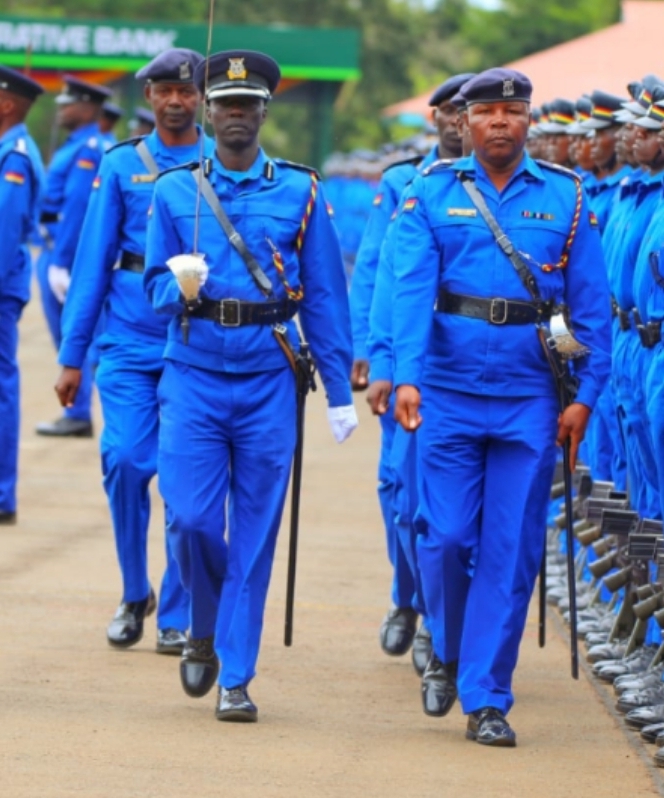Somali Magazine – Kenya has asked for a funding vote of Ksh36 billion ($237M) after estmating this as the budget she will need to prepare its 1000 troops on their mision to Haiti. Kenya insists that this is the budget that the international comnunity must chyme in for the mission.
The funds will go towards traininng the soldiers and buying equipment that will be needed for the successful undertaking of the mission, Interior Cabinet Secretary Kithure Kindiki told parliament this week . This however excludes any other country that may want to deploy, meaning the actual cost of the Haiti Multinational Security Support mission (MSS) as it is formally known could be higher.
Prof Kindiki was appearing before the joint security committee of both the National Assembly and Senate, a program that was to represent the public participation phase of the issue.He went on to say that the money will go towards training, administration support, transport, purchase of technical equipment, general equipment and purchase of weapon, ammunition and anti-riot equipment.
“The cost of implementation of the mission shall be borne through voluntary contributions by United Nations member states and organisations to a trust fund,” Prof Kindiki told MPs.
At least ten other countries have shown interest in deploying personnel of various kinds to aid in the efforts, but it is the Kenyan police who will lead the mission as it received approval from the UN Security Council in October.
The US government, taking the lead in the international support, has already pledged $200 million while Canada follows in its footsteps pledging technical support.
Prof Kindiki said Kenya could spend from its coffers and be refunded by the United Nations Security Council.
Kenya’s descision to lead the mission has caused controversy in both Kenya and Haiti. A local lawyer in Nairobi has sued the government in an effort to halt the deployment until the case aiming to stop it all togetther is heard.
Nonetheless, the government had gone on to finalise the procedures which include parliamentary approvals. In Haiti, some local movements warned against any new foreign interventions claiming them to be unlawful.
In the 1920s, Haiti became the first independent black country. Since then, she has been subject to foreign intervntions of various kinds, a state of insecurity with 13 successful coups and seven assasintaions of its leaders and the rise of violent gangs.
President Ruto has argued that Nairobi is consistent in seeking peace and that it is expressing responsibility on world stage by volunteering to send its police to intervene in Haiti.
Prof Kindiki told the committee that the deployment of the 1,000 officers will not jeopardise the security of the country as there are enough officers that will remain locally to ensure the safety of Kenyans.
Prof Kindiki appeared before the committee alongside Inspector General of Police Japhet Koome. They urged parliament to approve the deployment of the officers claiming they have international obligation to engage in such missions. Koome claimed the 1000 oficers choesen were of a special kind vetted and approved up to the task.
The Kenyan police force is preparing to deploy 1,000 officers to Haiti, under the leadership of an Assistant Inspector General. This mission commander will be supported by three commissioners responsible for operations, staff, and logistics. The headquarters team will also include 96 personnel from various departments such as intelligence and investigations.
The second tier of the deployment will consist of officers from the formed police unit, including five commanders, five deputy commanders, and 25 support service officers. Each of the five platoon commanders will lead five officers, with an additional 25 officers serving as deputy platoon commanders, sergeants, and senior sergeants. The mission will also include 135 corporals and 655 constables.
Mr. Koome, the spokesperson for the mission, assured that the officers have been carefully selected and prepared for the task ahead. He appealed to parliament for approval, citing the urgent need to address the ongoing human rights violations in Haiti.
The Kenyan officers will be tasked with providing command support, assisting in operations and planning, building the capacity of the Haitian police force, and protecting critical infrastructure. They will also ensure the safe delivery of humanitarian aid, maintain law and order, and carry out arrests and detentions in compliance with the law.

